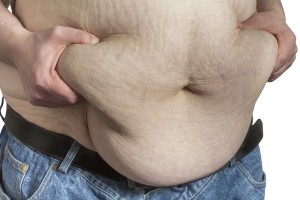
kunertus/Dollar Photo Club
Stress kills us. Luckily, it is a slow process, dragged out over the course of decades resulting in a painfully slow death.
The process is not direct. It’s not like you stress out after getting cut off in traffic and then drop dead before the next exit. Acute stress is something our bodies were designed to handle and handle well. It’s the chronic variety that our bodies do not know how to deal with.
Stress has been linked to many different chronic diseases, but top of the list is weight gain. But how does this work? Is it a direct effect? This particular study addresses how stress effects our bodies’ response to fatty meals.
Specifically, researchers looked at 58 healthy women (38 breast cancer survivors and 20 control women) with an average age of 53.1 years, received either a high saturated fat meal or a high oleic sunflower oil meal during two separate 9.5-hour admissions to a center for testing.
On each occasion, the women were asked about prior day stressors as assessed by the Daily Inventory of Stressful Events questionnaire. Here’s what they found:
- Greater numbers of stressors were associated with lower postmeal Resting Energy Expenditures (they burned less calories after the meal with higher stress).
- More stress also led to less fat oxidation (less fat burning).
- More stress led to higher insulin after the meals (essentially more prediabetic).
- Interestingly, women with prior major depressive disorder had higher cortisol and higher fat oxidation.
- Women with a history of depression who had more stressors had a higher triglycerides after the meal.
These effects can be factored into a difference of 435 kJ less energy burned from depression factors that could add almost 11 pounds per year. Cleary stress and depression, especially when mixed, play a role in the development of obesity and all the chronic diseases that go along with it.
Unfortunately, depression comes along with its own set of problems. When you are in the throes of depression, making healthy choices is the last thing on the list. Exercise and eating healthy just aren’t likely to happen. And yet, these choices would help to curb obesity and chronic disease.
With anxiety and stress, on the other hand, making these healthy choices is not impeded by a lack of motivation, but rarely seem to happen. If you experience anxiety or are prone to anxiety, understand that you every time you allow yourself to stress, every meal you eat over the next 24 hours will be a meal that increases your risk of becoming obese.
